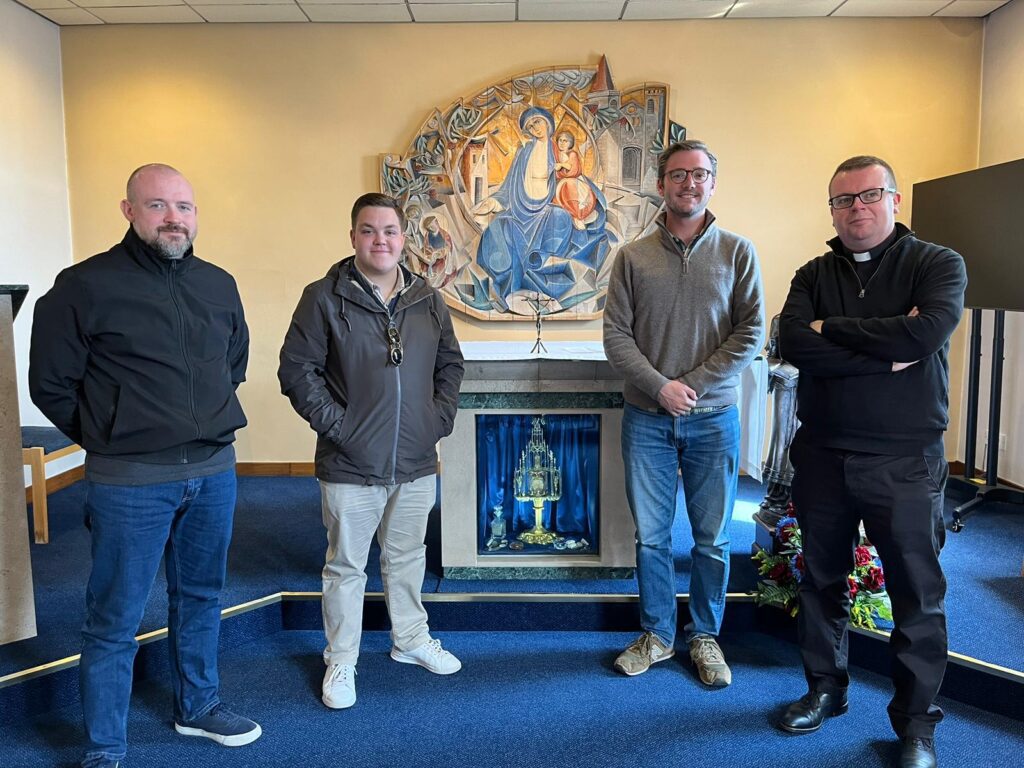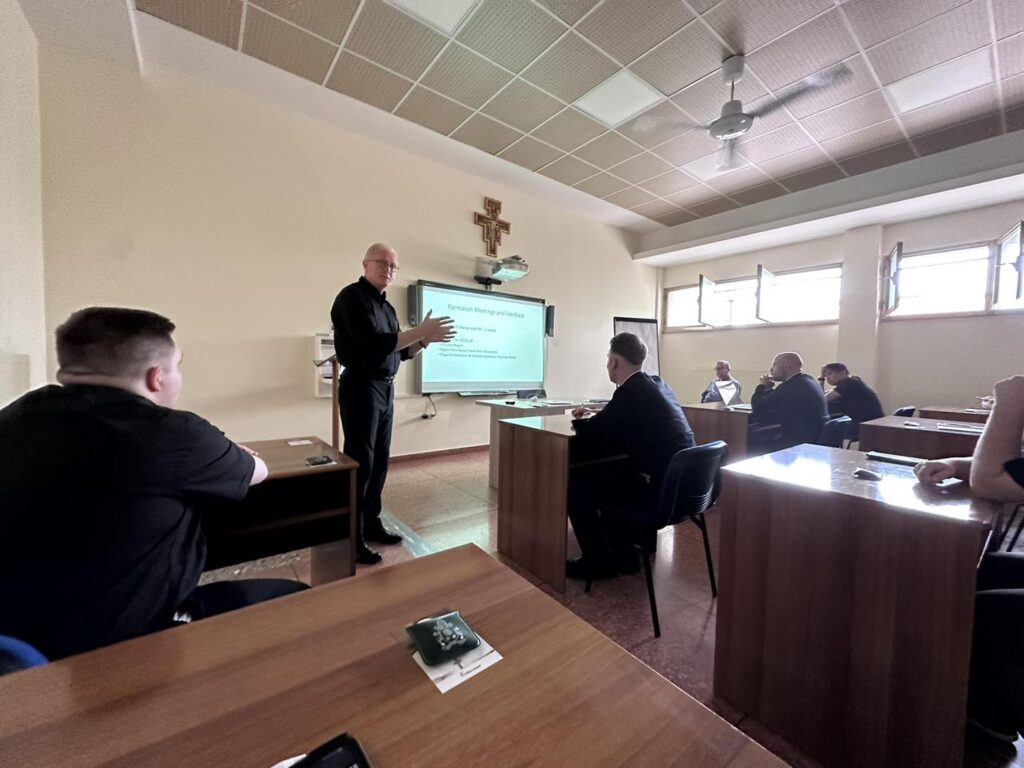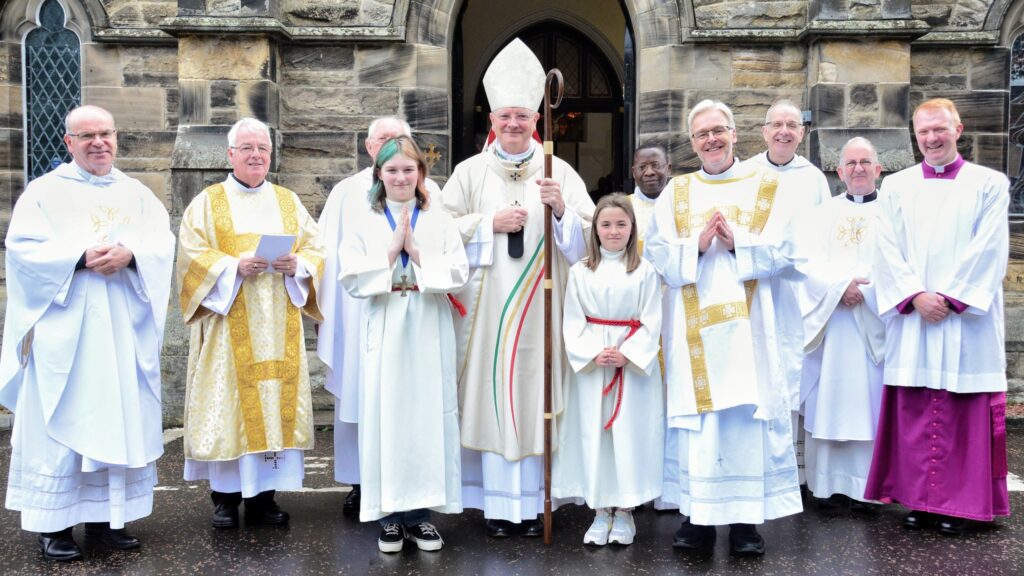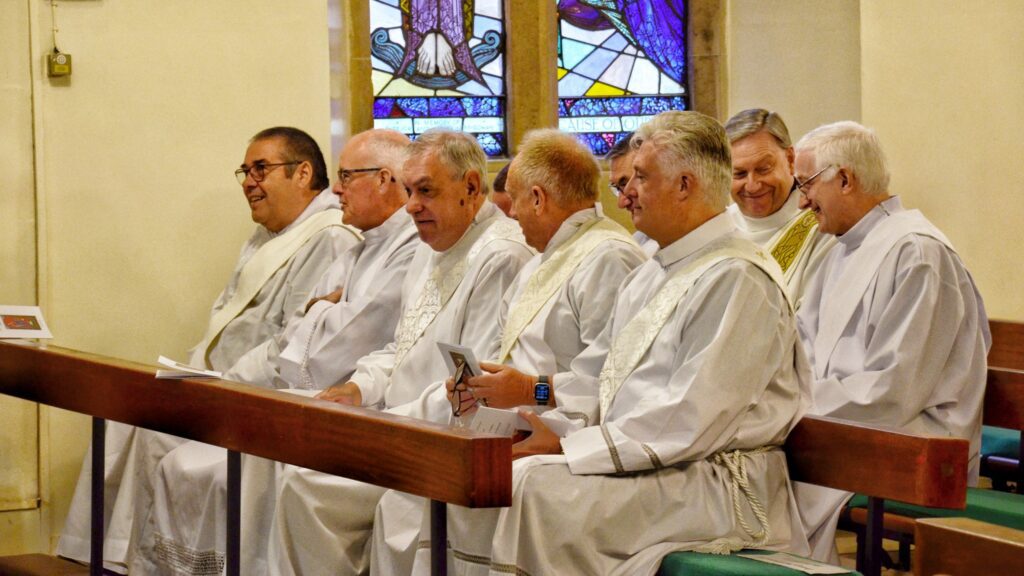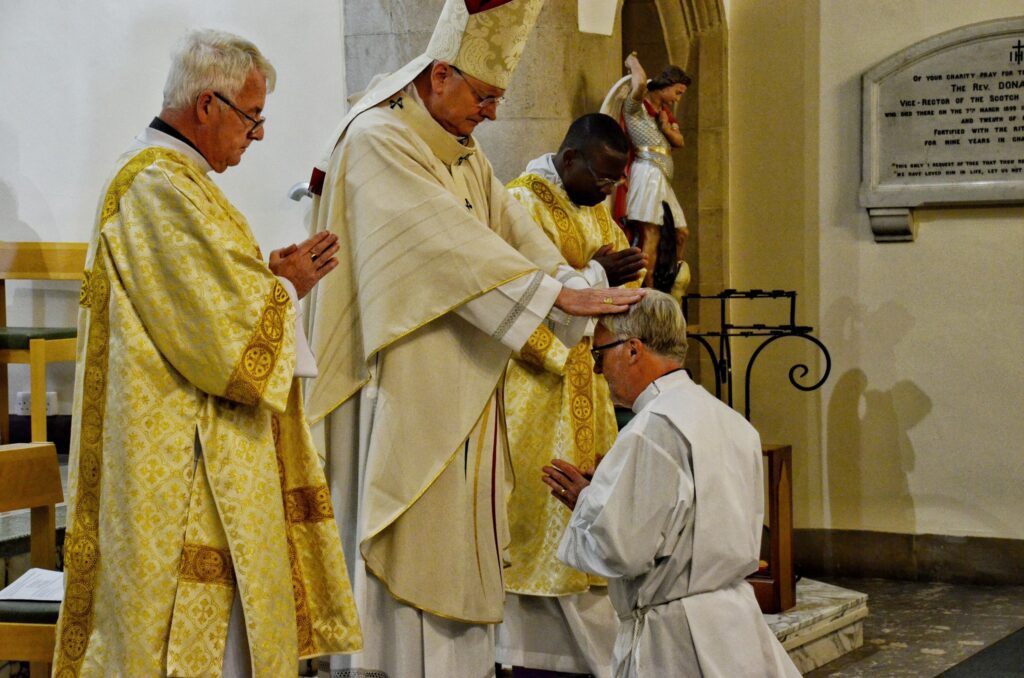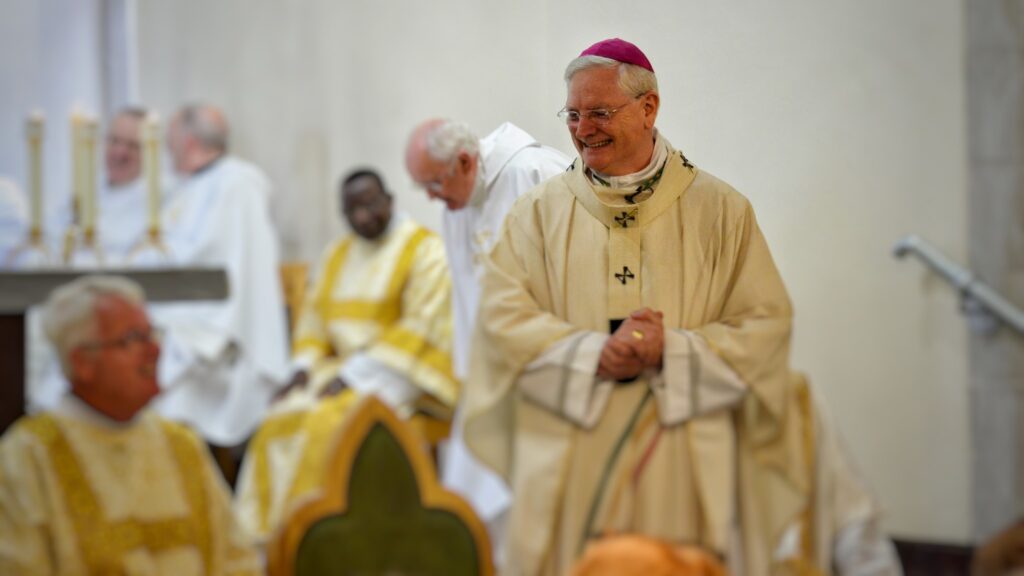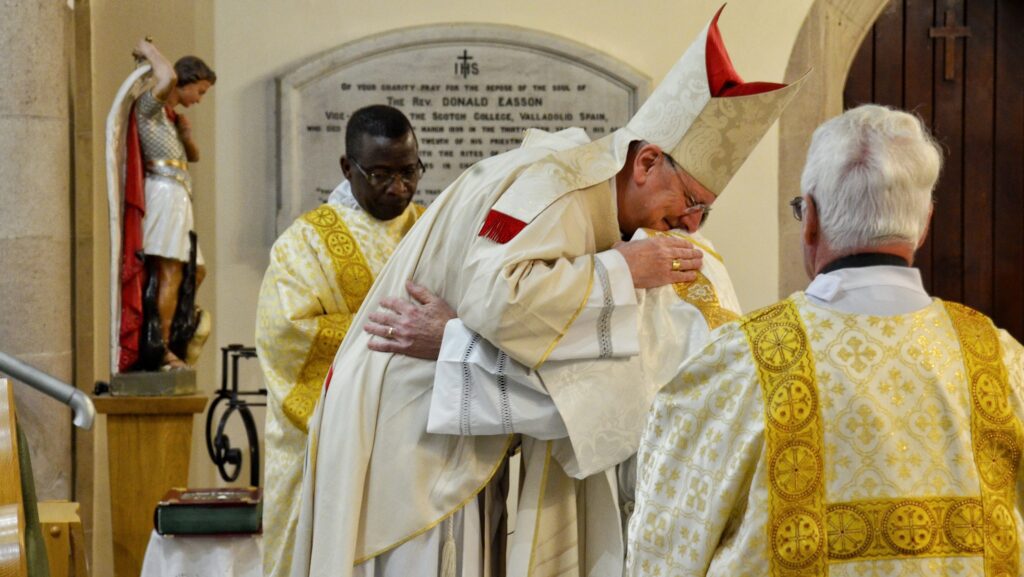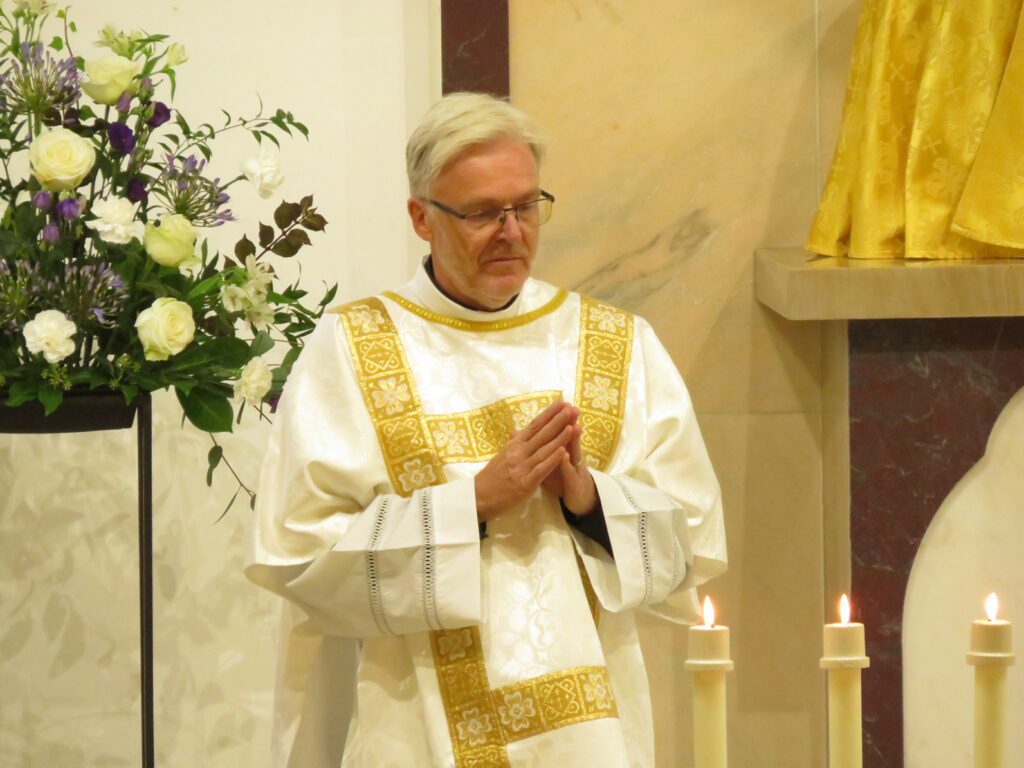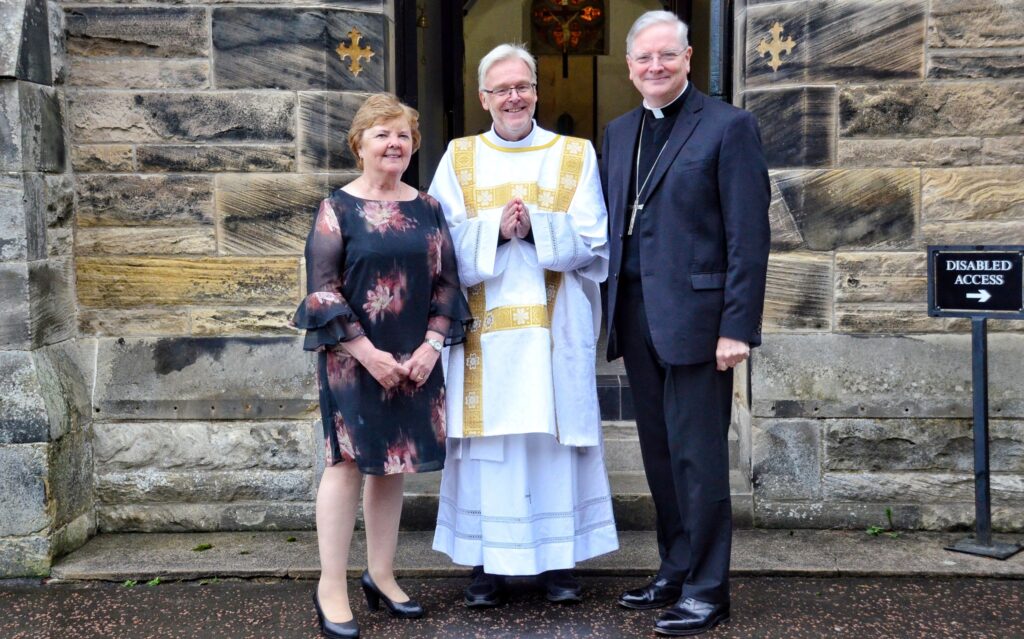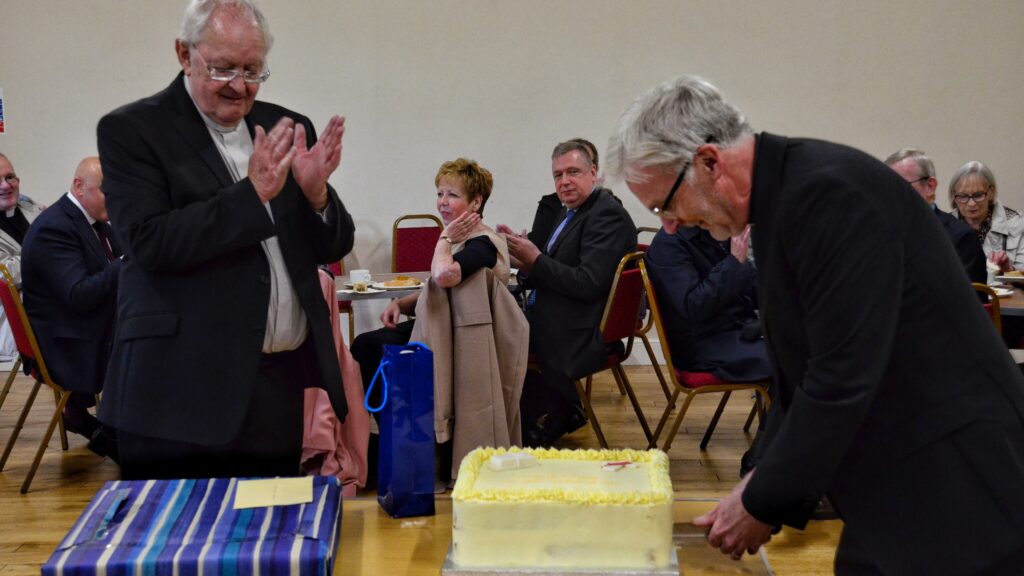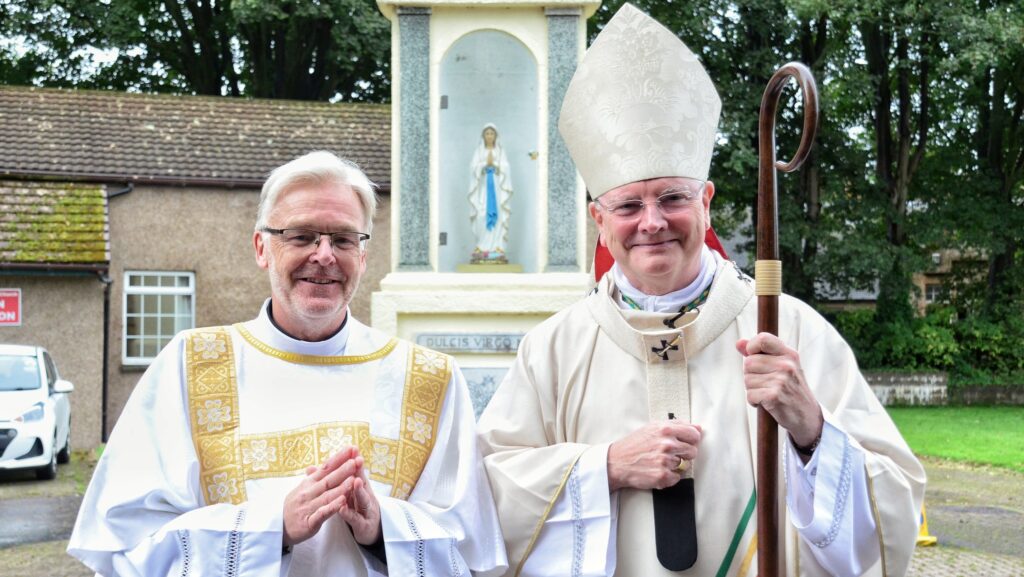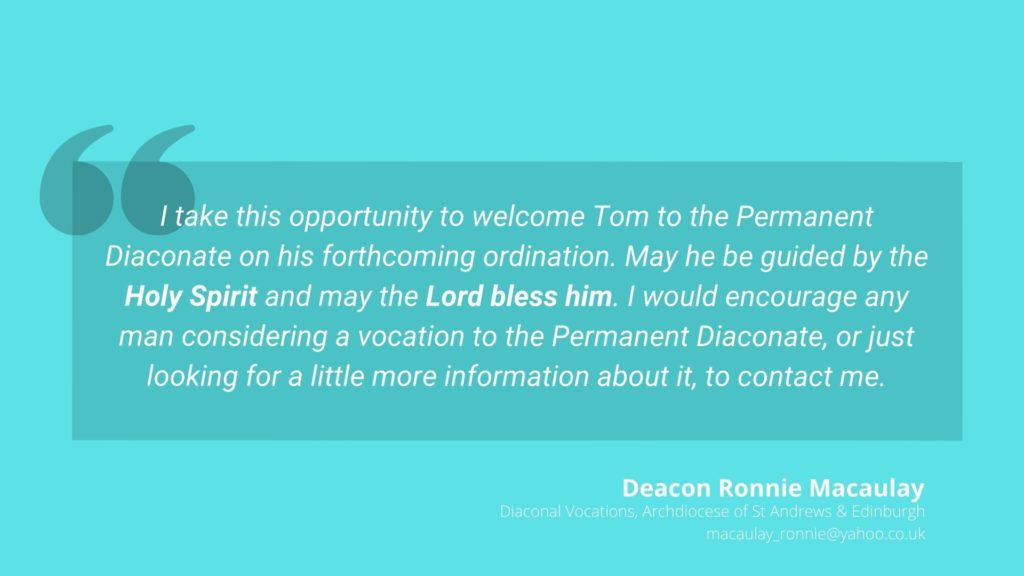Matthew and Kieran ordained deacons
Congratulations to Matthew McCafferty and Kieran Burt who were ordained deacons in Rome by Archbishop Cushley.
The ceremony took place yesterday at St Paul Outside the Walls and represents their final step on the path to priesthood.
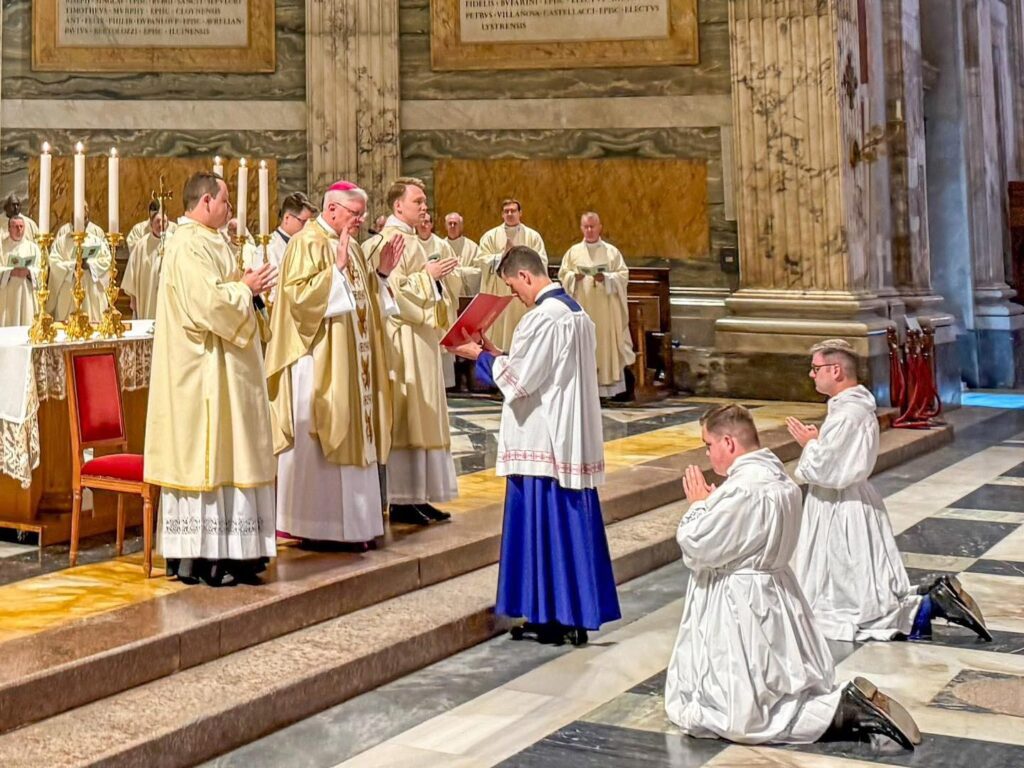
Matthew, from Bathgate, is a seminarian of the Archdiocese of St Andrews & Edinburgh, while Kieran is from Motherwell Diocese.
Archbishop Cushley told them: "To be a deacon is to serve; to be Christlike is to serve; and you are called to embrace both, in a life of perfect service: a joyful, constant, self-emptying gift to the Lord and His people."
On this World Day of Prayer for Vocations we ask God to guide both men on their path to priesthood.
Homily of Archbishop Leo Cushley of St Andrews & Edinburgh, Diaconate Ordinations, St Paul Outside the Walls, Rome, 10 May 2025
My dear friends,
A warm welcome to all of you, to our diaconandi, but especially to the parents, relatives and friends of Kieran and Matthew, some of whom have travelled far.
Thank you for joining us on this happy and solemn occasion. And we’re all very grateful to His Eminence Cardinal Harvey, Archpriest of St Paul’s outside the Walls, and to Canon Mark Cassidy, Rector of the Pontifical Scots College, and to the staff and seminarians for their welcome and assistance.
All of us here, and I think it’s fair to say especially the clergy, appreciate the profound significance of what is about to take place in the lives of these men.
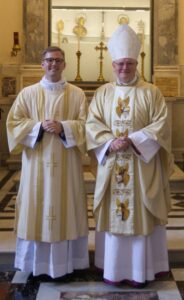
To be sure, they have been in formation for a long time now and have been preparing eagerly for this day.
But today is not only a question of the change wrought in them by the sacred nature of holy orders, or of finally coming to a point of arrival; today also has the nature of a solemn pledge, that these men are open to God’s grace, that they will continue to deepen their love for our divine Master, and to mature in serving God’s people in the Church, even as they also continue, please God, on their way towards the priesthood.
This is the moment when these men publicly assume the duties of service associated with the diaconate.
Today, they will promise to pray the Liturgy of the Hours every day for the rest of their lives; they will promise respect and obedience to their bishop and his successors; and they will embrace a life of celibacy for the sake of the kingdom of heaven.
Publicly and willingly – and, it is to be hoped, joyfully and constantly - they will assume all the above. It is the experience of us who’ve been there before them, that these commitments will surround them and assist them in the fulfilment of their new mission.
This day has been on their horizon for years now, and they have been getting ready to embrace each of these promises in its entirety: we know that they are not a mere formality; rather, they are things that will shape them, and shape them for the good, from today and for the rest of their lives.
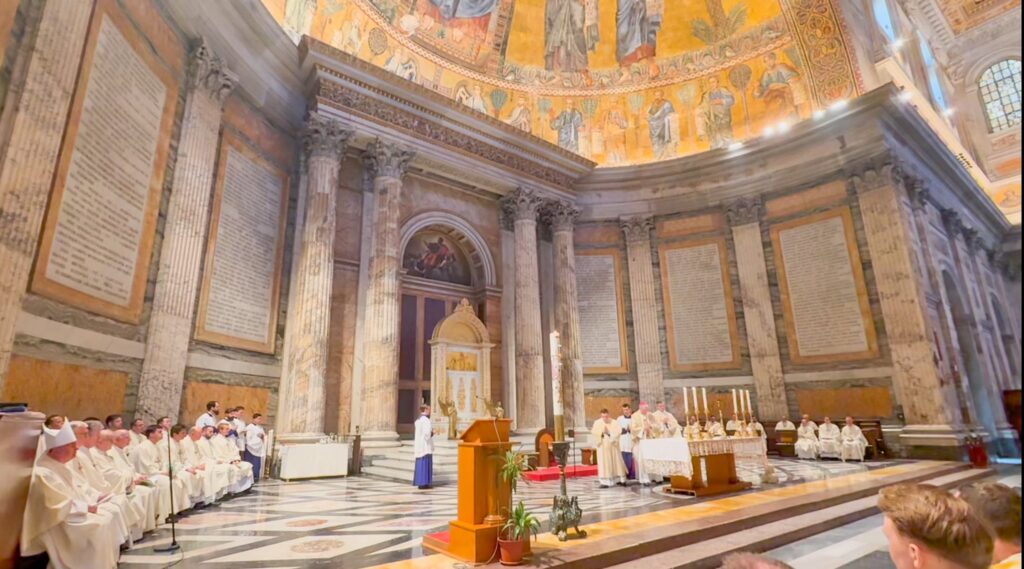
We all know that words are easy to say, and promises can appear easy too; nor is this ceremony actually very complicated; but in spite of the simplicity and sobriety of today’s rites, we can still glimpse the profound change that divine grace will be summoned upon to make in them; we see what is being demanded of them in their lives, in private and in public; and even now, we catch sight of how this is going to determine how they will live and how they will serve God and the people round about them for the rest of their lives, both in the diaconate, and later on in the priesthood.
But none of this is magic; none of this is sentimental; none of this is automatic. Even before they were sent to Salamanca and Rome, they were being formed by the Lord and by Providence for what is now coming to pass today. For it to become a lived and lasting reality, then, they will
continue to need your support, so that what is begun today may be completed happily in God’s good time.
Addressing the diaconandi
My dear sons,
None of what I have just said will, of course, come as a surprise to you, since you have probably waited long and impatiently for this day, and wondered if it would ever arrive.
I know, because I was once there too. To come to this day, then, and to be ready to embrace all its commitments with a full heart, is something that is a joy that cannot always be fully appreciated by those who have not committed themselves to Christ in this unique and single-minded way.
Entering holy orders undoubtedly sets you apart, and this is made doubly true, because we live in a world that does not acknowledge, or care to understand, how such a willing, joyful, lifelong commitment is possible, let alone desirable.
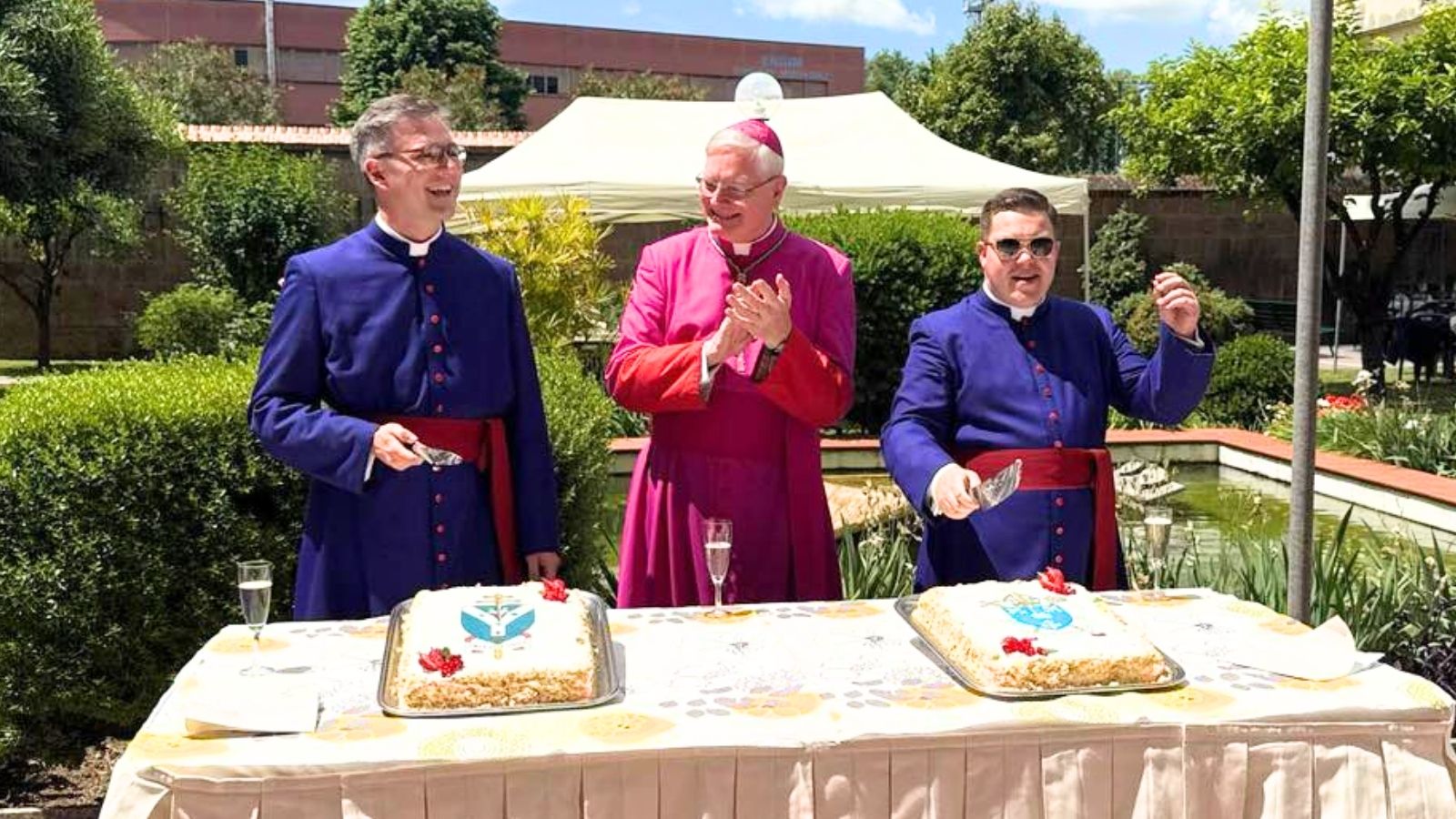
In the Order of Deacons, you will be conformed to Christ, our great Deacon. After all, Christ is the first and the greatest of us deacons. He showed us the path a deacon must tread, the true path of service.
His diaconal service starts at the Annunciation, where true God becomes true man and lives among us: in the Virgin’s womb, the very Son of God becomes a humble, weak, mortal human being, one like us in all things, but sin.
His service as our true Deacon is seen even more vividly in His passion and death on the Cross. From the gift of Himself in the Eucharist at the Last Supper, to the complete emptying of Himself on the Cross, even to His death and His being laid in the tomb, Christ our Deacon shows us a path of service that is a perfect one, and one worthy of reflection and imitation by you.
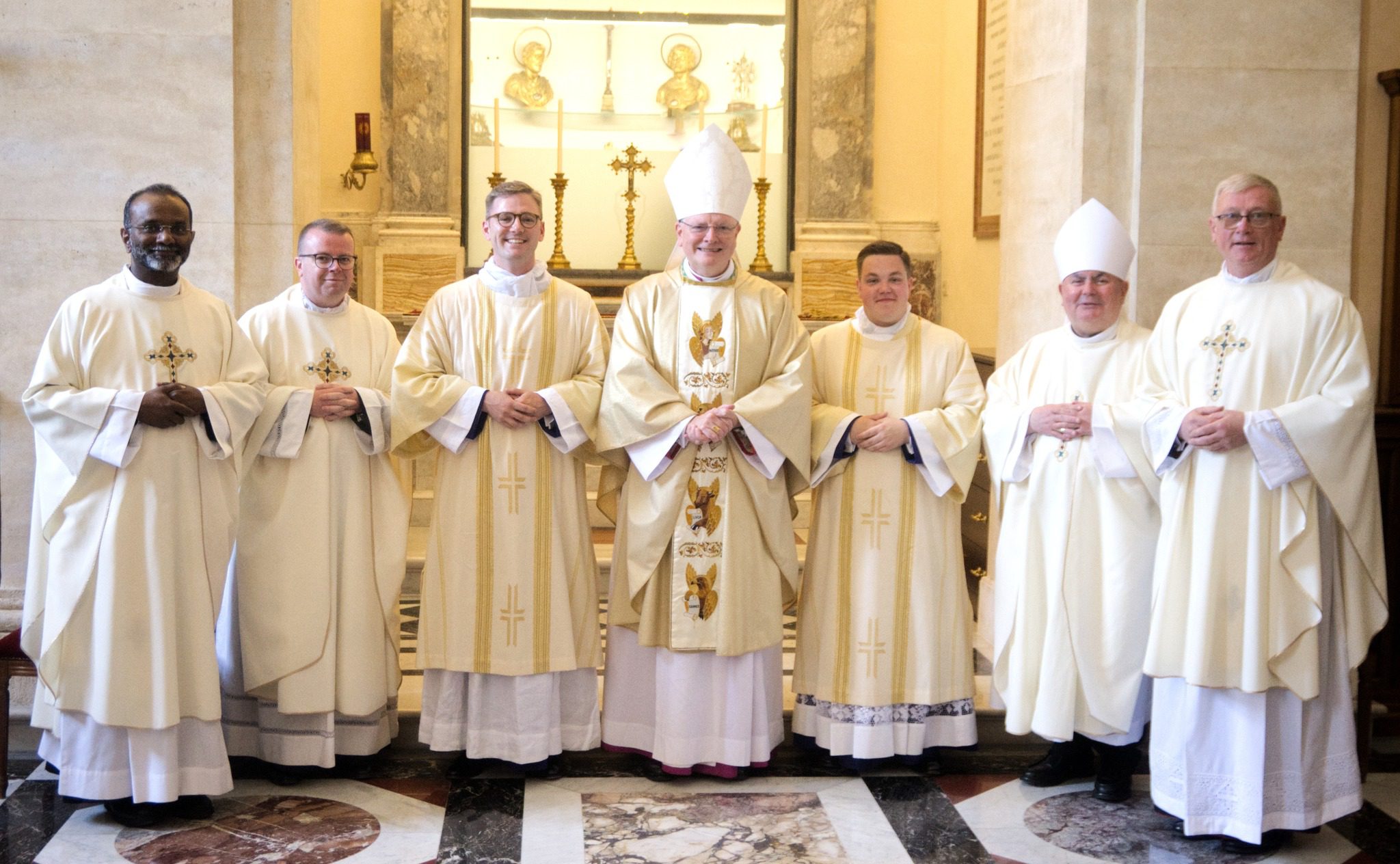
To be a deacon is to serve; to be Christlike is to serve; and you are called to embrace both, in a life of perfect service: a joyful, constant, self-emptying gift to the Lord and His people.
As you know, a deacon is a herald of Christ and of his Word, proclaiming the Gospel, in season and out of season.
As well as proclaiming the Gospel in words, a deacon also learns to serve others by listening to them. Secondly, a deacon is also an ambassador of Christ, representing the Lord faithfully, even in the silent witness of a holy life.
Above all, a deacon is one who serves just as Christ Himself served. For your part, therefore, be prompt in your service; put others before you; complete your duties cheerfully. And let this time of service be the beginning of a life spent joyfully, in imitation of Christ, our great Deacon. Amen!
